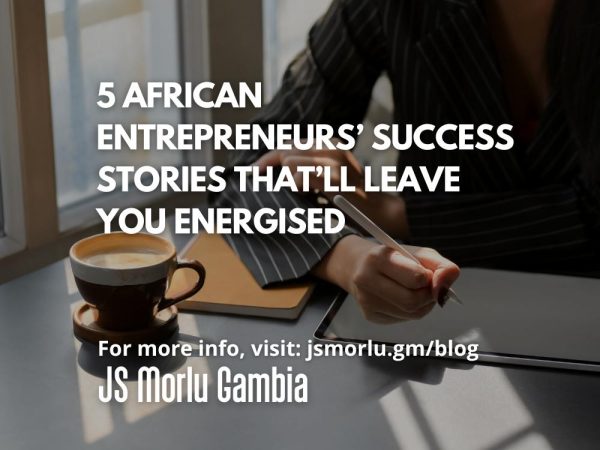
Successes didn’t come easy for many entrepreneurs. They were faced with a lot of challenges from funding, stymied economic growth and infrastructure.
In Africa, entrepreneurs are responsible for creating 80% of the jobs, which is a significant contributor to economic expansion.
Lorna Rutto, a Kenyan businesswoman is a great example of an entrepreneur that have used her position to create jobs for over 100 people.
These African entrepreneurs’ success stories prove that with grit, determination and hard work, you can achieve anything. Let’s take a look at five African entrepreneurs’ success stories that will leave you energised.
1. Jason Njoku, Nigeria
Jason Njoku is a seasoned entrepreneur who’s passionate about finding solutions.
Njoku attempted to launch a blog network, a T-shirt company, and a web design firm between the 2005 and 2010, but he was unsuccessful.
He returned to Nigeria in 2010 to establish contacts with local film makers and buy content rights for his-new company, IrokoTV.
Jason’s friend and business partner, Sebastian, contributed $102,000 to make this venture viable.
“When we started making investments in Nigeria back in 2012, that seemed stupid. We were way too early. Pretty stupid. I agree. Consumer internet in Nigeria was so early it’s pretty scary today.
Breaking rocks and bleeding stones for every Naira of revenue is the least fun thing to do,” he said.
Since then, Njoku has been successful in raising large sums of money to expand a business that Forbes Magazine called “the Netflix of Africa.”
2. Anna Phosa, South Africa
Anna Phosa found it incredibly hard to raise capital in her while starting a business.
Anna Phosa used $100 to start her first pig farm in Soweto in 2004. Her farm had only 4 little pigs at initial starting point, but after 4 years, the South African grocery brand Pick ‘n Pay awarded her a contract. The supplier was required by the contract to sell 10 pigs per week.
This represented somewhat of a breakthrough, and soon the demand increased to 20 pigs per week. After two years, Anna Phosa renewed her agreement with Pick ‘n Pay to deliver 100 pigs each week for five years. A $1.9 million deal was made.
With the help of this contract, Anna was able to obtain financing from USAID and ABSA Bank in order to purchase a 350-hectare farm. Currently, the farm raises roughly 5,000 pigs with a staff of 20 people.
3. Lorna Rutto, Kenya
Knowing what you want to do and actually pursuing it are two different things. Lorna Rutto left her position as a bank employee in 2010 to launch a waste recycling company. Her business, EcoPost, collects discarded plastic and recycles it into fencing posts that are aesthetically pleasing, long-lasting, and environmentally benign.
By using alternate materials in place of timber, this concept aims to preserve forests. Lorna Rutto was successful in securing funding from non-governmental organisations and local and international investors.
4. Dominic Mensah, Prince Boakye Boampong, and Jesse Arhin Ghansah Ghana
Dominic Mensah, Prince Boakye Boampong, and Jesse Arhin Ghansah founded OMG Ghana in 2012 by while they were still in college.
When Jesse and his friends first started using smartphones, it was difficult for them to locate engaging content online.
So they made the decision to found a media company that produces content for other young, tech-savvy Africans much like them.
The company’s reputation and clientele have today expanded from Ghana to Nigeria and Kenya. Furthermore, sites are about to become up for South Africa, Uganda, Zambia, and Tanzania.
One of the most prominent accelerator programmes in the world, Y Combinator, accepted the trio of entrepreneurs. They also received $1.1 million in June 2017 from a collection of venture capital firms and angel investors.
5. Bethlehem Alemu, Ethiopia
Bethlehem Alemu was raised in the impoverished Ethiopian village of Zenabwork, which is a suburb of Addis Abeba.
Bethlehem created the ground-breaking footwear company soleRebels in early 2005. This was after graduated from college in Addis Abeba. In was all in line with Alemu’s dream to create stable, local jobs.
Soon SoleRebels became one of the most well-known rapidly expanding African footwear companies in the world.
More than 50 countries throughout the world, including the USA, Canada, Japan, and Switzerland, have purchased her line of sustainable shoes manufactured from recycled materials.
But without the $10,000 in funding she received from family and friends in 2004, her dream would never have taken off.
Original Source: Business Elites Africa
